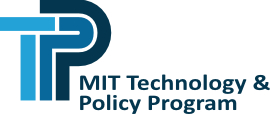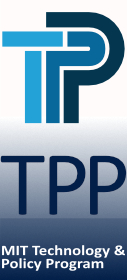Apply
We strive to recruit a diverse class of students to the Technology and Policy Program. Applicants should be interested in combining mastery of a specific technological domain (energy, environment, computation, transportation, aerospace, etc.) with deep understanding of the application of social science methods (economics, political science, management, law, etc.) to policy formulation and analysis.
The program prepares graduates for professional careers at the interface of science, technology, and policy, including in industry, government, academia, regulatory agencies or consulting. Graduates also leave the program prepared for PhD work, such as the IDSS PhD in Social and Engineering Systems.
What does the TPP Admissions team look for in an application?
Applicants to the Technology and Policy Program are expected to have the background to excel in graduate-level subjects in engineering, data analysis, statistics, economics, political science, and management, as well as to complete a research thesis that contributes to the field of technology policy. In addition to an appropriate academic background most successful candidates also have acquired one or more years of work experience following completion of their undergraduate degree. Again, these elements are not required for admission, but are common skills and experiences for most admitted students.
Academic Excellence
We evaluate each applicant individually, consider the opportunities that each prospective student has had to demonstrate their intellectual capabilities. In this context, we consider university coursework, research experience, and standardized test scores such as the Graduate Record Examination (GRE). (NOTE: For the 2024 Admissions Cycle, the GRE General Test WILL NOT BE ACCEPTED due to testing limitations caused by COVID-19 and the difficulty many applicants have had accessing tests and testing sites.) We pay particular attention to recent evidence of academic performance and achievements in areas directly relevant to technology and policy.
Interest in Technology Policy
We evaluate prospective students’ interest in technology and policy through their prior experience and their statement of objectives. Practical experience in understanding how technology issues are approached in real-world contexts is important to students’ success in the program. Generally, successful applicants have previous work or internship experience in government, nonprofit, or industry sectors. We are particularly interested in hearing about the goals and career plans of applicants through their statement of objectives, and how TPP will fulfill their objectives.
Capacity for Technology Policy Leadership
We seek students who are prepared to work for the good of a larger community. Leadership experience is interpreted broadly – we would like to hear through your statement of objectives how you have influenced and inspired the people around you. We are especially interested in candidates who can be effective in motivating concern about issues, catalyzing coalitions to effect change, and managing implementation of new policies.
Diversity
TPP promotes team-centered learning among a culturally and internationally diverse group of students. A diverse student body has always been critical to the educational mission of MIT. TPP is committed to providing our students “with an education that combines rigorous academic study and the excitement of discovery with the support and intellectual stimulation of a diverse campus community” (MIT Mission).
Our students’ success depends on their exposure to many viewpoints and their ability to trust peers to provide both support and criticism. Moreover, the experience of working with a diverse set of peers at MIT prepares our students to work effectively in the world outside MIT: it opens their minds and attunes them both to the variety of strengths and the variety of concerns of others.
The existence of such diversity of viewpoints depends upon representation within our student body of backgrounds and experiences that vary along many dimensions, among which are gender identity, sexual orientation, race, ethnicity, culture, nationality, disability, religion, age, veteran status, and socio-economic background.
No student should feel isolated, and all students should come into contact with members of other groups and experience them as colleagues with valuable ideas and insights.
It is through this experience of the richness and diversity of interests, strengths, viewpoints and concerns of their fellow students that our students become open-minded intellectuals and innovators, primed to pursue the MIT mission of the betterment of humankind.


